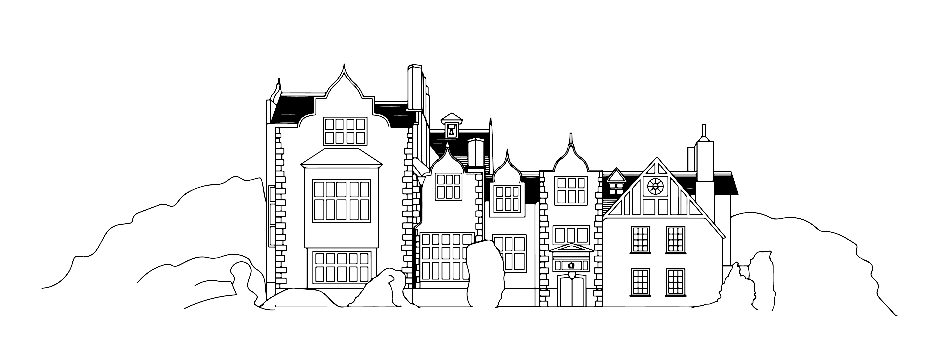
Close

Built: 1470
Karma Salford Hall was originally built in the 14th century as a guest house for the monks of Evesham Abbey, and previous residents have included monks from the Benedictine Order. The property was later used as a rural refuge for the infamous King Henry VIII after he seized Evesham Abbey and all its land, which included Salford Hall. He went on to sell it to his friend trusted Sir Philip Hobby in 1538. It was the first time Salford Hall passed from monastic hands to secular hands, but the properties’ Catholic link would remain strong for centuries to come.

Charles Stanford – Born in Handsworth, Birmingham, England, Married Eleanor Alderford, and Died in 1638
Eleanor Alderford – Born about 1583 – Married Charles Stanford
Coenred King of Mercia – (Lands) Born in 657 and Died in 709
John Stanford – Born in 1600 in Handsworth, England, Married Frances Peshall, and Died in 1649
Frances Peshall Stanford – Born in 1609, Married John Stanford
William Stanford – Born in 1630, Married Dorothy Paston, and Died in 1690
Dorothy Paston – Born about 1624, Married William Paston
John Stanford – Born at Salford Hall, England, Married Marcy Sheldon in 1670, and Died in 1712 at Salford Hall
Marcy Sheldon – Born about 1648, Married John Stanford in 1670, and Died in 1692
William Stanford – Married Mary Stanford
Mary Stanford – Married William Stanford
Philip Hobby – Born in 1505 in Leominster, England, Married Elizabeth Stonor, and Died in 1558
Robert Stanford – Married Mary Stanford in 1776 and Died in 1767
Mary Stanford – Married Robert Stanford in 1776 and Died in 1812
Robert Berkeley
John Eyston – Born in Faringdon, England
George Basil Eyston
Anthony Littleton – Born about 1527 in Salford Abbot, England and Died in 1600
Henry VIII Tudor – Born in 1491 at the Palace of Placentia, London and Died in 1547 in London, England
With a heritage dating back to mediaeval times, Salford Hall is located in one of the most picturesque rural regions of the British Isles, just a stone’s throw away from the historic town and Shakespeare’s birthplace, Stratford Upon Avon. Now a charming country retreat, the history of Salford Hall is one that boasts a longstanding association with the Benedictine Order, as well as a regal connection with none other than King Henry VIII.
Journeying back to the 12th century, it is thought the Salford estate was divided into Salford Minor and Salford Major, with the latter being gifted to Lady Godiva from the King, Edward the Confessor. Meanwhile, Salford Minor was under the ownership of Evesham Abbey and soon became known as Abbots Salford owing to the many Benedictine monks who took residency there. By 1162, a chapel was built for the monks to worship in and, three centuries later, this was accompanied by a guest house dedicated to the monks of Evesham Abbey.
As Britain entered the 16th century, Salford Hall passed into secular hands following King Henry VIII’s break from Rome. According to William Dugdale, King Henry VIII seized Evesham Abbey and all its lands as part of the separation of the Church of England from papal authority, selling it on to his close friend and confidant Sir Philip Hobby in 1538. And yet, Salford Hall was destined to retain its enduring association with the Catholic faith, as the property was later purchased by a devout Roman Catholic family, the Stanfords, who would go on to inhabit the estate during the 17th and 18th centuries.
In 1727, the Benedictine monks returned to Salford Hall, with the ground floor having been converted into a chapel dedicated to their worship. Perhaps one of the most notable members of the Salford family was Mary Stanford, who was sent to Cambrai in France at the age of eleven to become a nun – a family tradition. Later on in her life, when the Catholic convent at Cambrai was in peril during the French Revolution, the philanthropic Mary Stanford offered the nuns refuge at Salford Hall under her patronage.
Although Salford Hall’s close alliance with the Catholic church has since come to an end, it is rumoured that one nun who was thought to have been murdered at the estate still haunts the hotel to this day… Supernatural hauntings aside, Salford Hall now stands as a tranquil retreat that embraces, celebrates, and embodies both its regal and papal heritage.
Storied Collection
